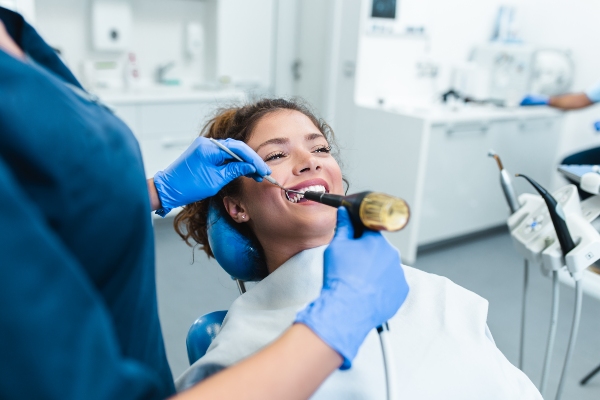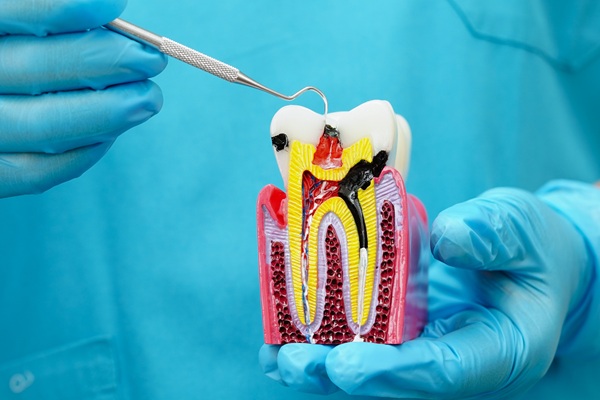Improve Your Oral Health by Seeing a Pain Free Dentist

Is dental anxiety preventing you from getting the oral care you need? Read this article to learn how a pain free dentist may be the answer to your problem. Many people dislike the thought of sitting in a dental chair due to various reasons, such as painful procedures or negative past experiences. However, the most prevalent dental anxiety is founded in pain, so seeing a pain free dentist is a great solution for these patients.
What is a pain free dentist?
Dental hygiene is an essential component of oral health. Dentists have struggled with the issue of causing pain to fill a cavity or remove wisdom teeth. Dentists can help anxious patients improve their oral health and avoid severe tooth issues later in life now that there are options to make procedures pain-free.
A pain free dentist can utilize various anesthetic and sedative treatments to make their patients feel more relaxed during their procedure. These include:
Local anesthetic
The dentist can use a local anesthetic to numb the mouth. This method works by inhibiting the nerves that send pain and sensory impulses to the brain. Before injecting a local anesthetic, the dentist may use a topical anesthetic in the form of a cream or gel to numb the surface. Injectable anesthetics are frequently used when filling cavities, treating gum disease, and preparing teeth for crowns.
Nitrous oxide
Laughing gas, also known as nitrous oxide, is widely used to help patients relax during dental procedures. This is administered to the patient using a little nasal mask. Patients can expect to feel comfortable during their operation, but they will stay conscious throughout.
Oral sedation
The dentist can also give patients sedative medication in the form of a tablet to help them relax during a dental procedure. The medicine is typically taken some minutes before the treatment.
Intravenous sedation
Intravenous sedation is another typical form of anxiety treatment in the dentist's office. The dentist will inject a sedative medication straight into a vein, resulting in a deeper level of sedation. The patient may be oblivious to what is happening, and the dentist may decide to keep them in the chair for extra minutes to monitor them. Patients should bring a friend or family member to accompany them home in these circumstances since the effects may linger for a few hours.
General anesthesia
This method entails keeping the patient unconscious throughout the treatment. The drugs will be administered, and the patient will be monitored during the procedure by the dental professional.
Ready for a painless dentistry experience?
If you are considering dental procedures but putting off your appointment due to dental anxiety, you should see a pain free dentist. You do not have to be concerned about the pain associated with procedures like crowns or dental implants. Make dental anxiety a thing of the past by receiving the care you need to maintain your oral health. Contact our dental office today to learn more about pain free dentistry, or to set up an appointment.
Request an appointment here: https://www.ohiocosmeticdentists.com or call Ohio Cosmetic Dentists at (614) 503-5240 for an appointment in our Columbus office.
Check out what others are saying about our dental services on Yelp: Sedation Dentist in Columbus, OH.
Recent Posts
For healthy teeth and gums, routine dental care is necessary. For most healthy people, two times a year is the recommended frequency for dentist appointments. This is typically adequate for deeper cleaning and preventive care. However, for some patients, more frequent appointments are necessary to manage certain issues and to prevent problems from becoming more…
Endodontics is a branch of dentistry dedicated to saving teeth by treating problems inside the tooth. It focuses on the health of the tooth's pulp and roots, essential to your smile's overall strength and function. Endodontics could be the key to relieving discomfort and preserving your natural teeth if you are experiencing tooth pain or…
Maintaining routine dental care is important for oral and overall health, but many patients have questions about what it consists of beyond daily brushing and flossing. The right answers can help patients of any age understand the importance of providing optimum care for their teeth and the possible issues if they fail to follow through.…
Incorporating good habits into routine dental care on a daily basis can help teeth and gums stay as healthy as possible. Regular dental hygiene is associated with reduced plaque, fewer cavities, and less incidence of gum disease over a person's lifetime. Patients do not need to completely overhaul their oral health routines. Instead, implementing a…


